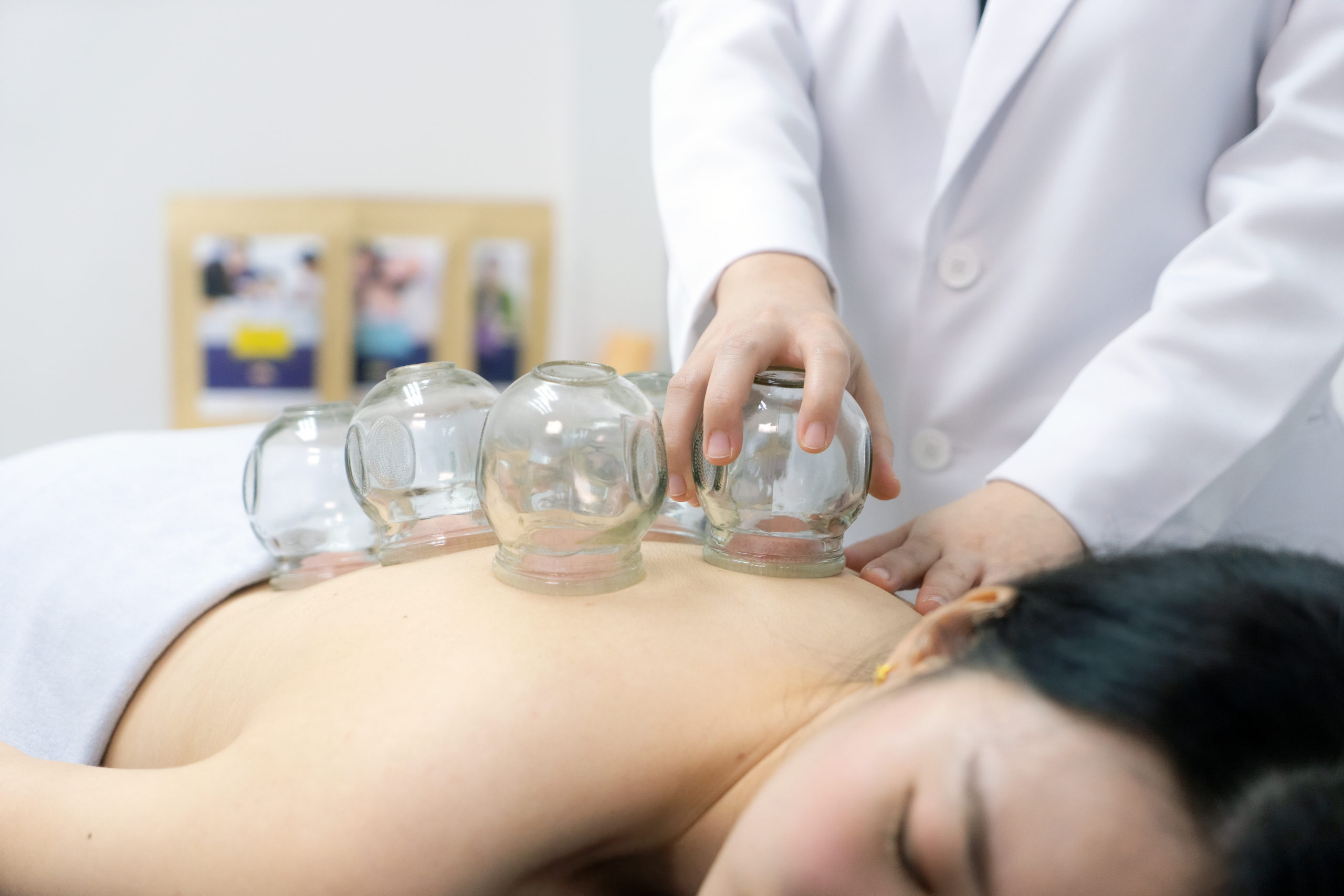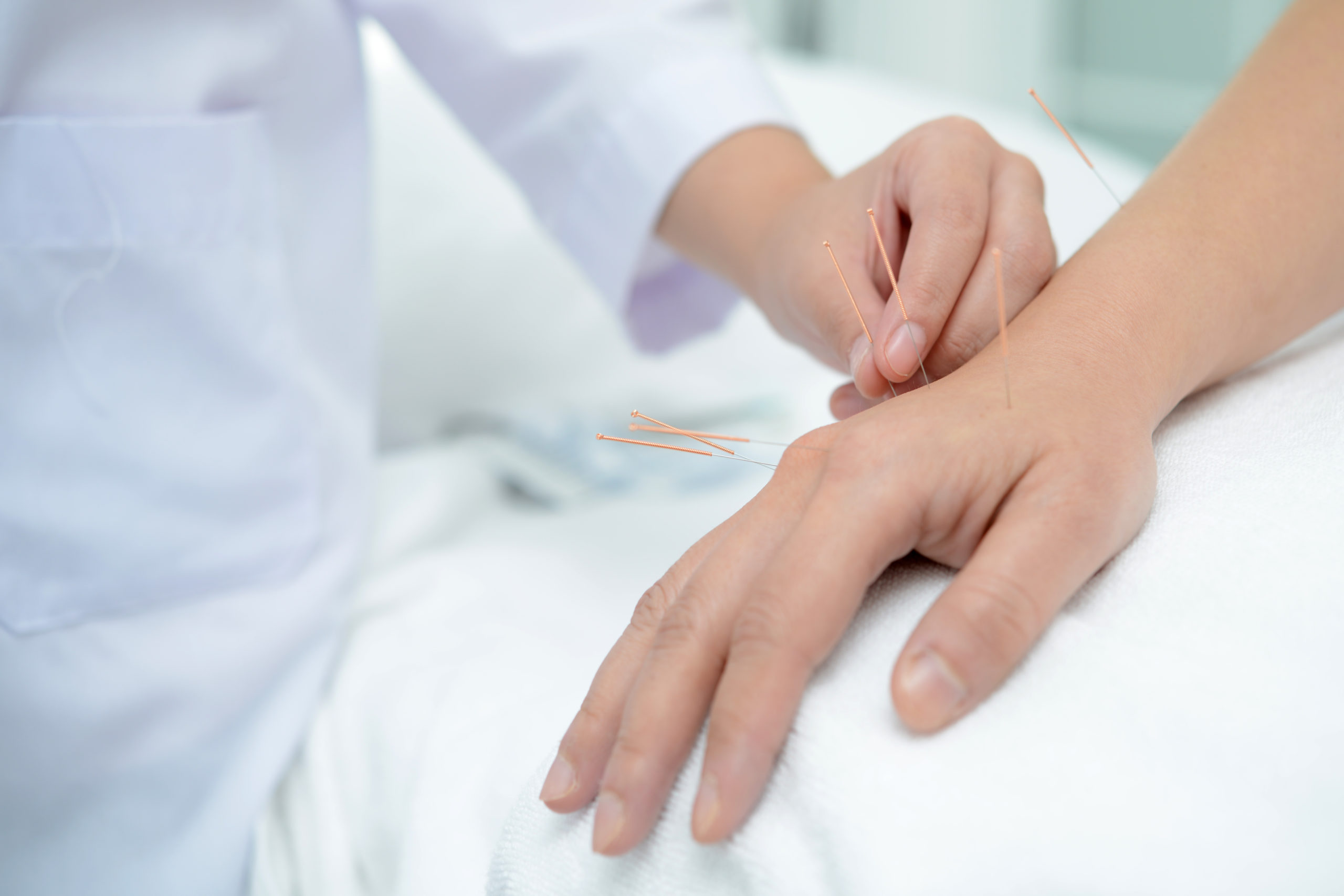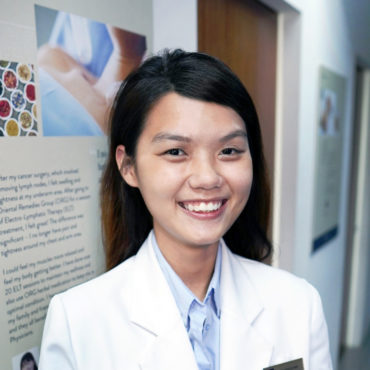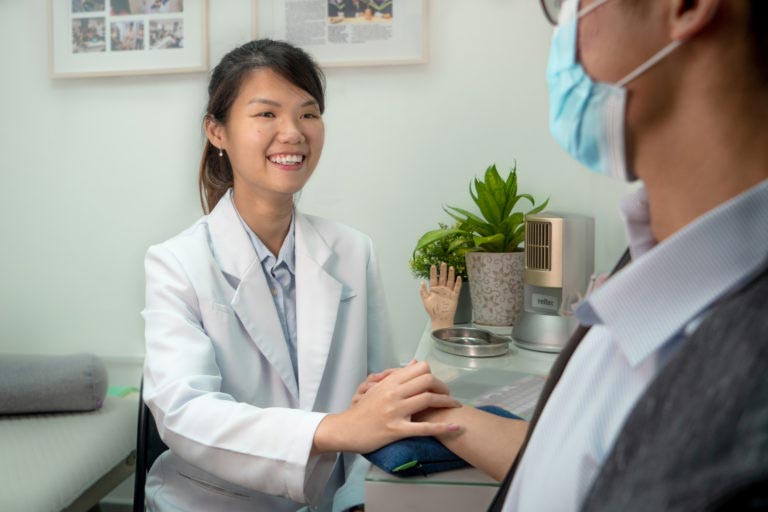– This article was originally published on Voices Wellness
Physician Ang Lee Fang explains how TCM can appeal to a younger generation and how the traditional practice works in tandem with Western medicine. By Samantha Francis.
If Traditional Chinese Medicine (TCM) brings to mind bitter herbal drinks, cupping marks, and acupuncture, you’re not alone. While once widely thought to be pseudoscience, the branch of traditional medicine with its origins in China is now considered a valid practice in the Lion City. In fact, TCM practitioners in Singapore are governed by the Traditional Chinese Medicine Practitioners Act.
What does a TCM practitioner do? And are their treatment plans in conflict with Western medicine? We speak to physician Ang Lee Fang from Oriental Remedies Group to understand TCM’s place in the modern world.
What’s in a day’s work for you?
I spend the majority of my day with my patients. While the more experienced physicians see more than 30 patients a day, I’m slowly making my way there. I pride myself on accurately diagnosing and prescribing the appropriate treatment for my patients—nothing beats the satisfaction of seeing their weekly improvements.
My role as a physician in a modern TCM clinic extends beyond seeing patients. I’m also involved in creating educational content for our patients and the public, as well as training the team on common health conditions.
What’s the most fulfilling part about your job and what’s the most challenging?
The most fulfilling part is when I see my patients recover, especially those who have failed to see improvement from prior treatments. I enjoy taking on challenging cases and conditions. When my patients feel their pain and discomfort going away, it’s all worth it.
The most challenging part is that many patients expect TCM practitioners to be old because they relate the experience to age. Some are surprised by my youth and may hesitate to fully heed my advice. Thankfully, they become receptive once they see good results from my treatment plan.

How do you think TCM has evolved and changed in Singapore over the past decade or so?
Singaporeans are now more accepting of TCM. Back then, many held the idea that TCM and western medicine were mutually exclusive. With time and research, it has been proven that the two can work together to bring greater benefits to patients. For example, TCM is an effective complementary treatment for cancer as herbs can be used to minimise the side effects of conventional cancer therapies. These include reducing nausea and increasing appetite, which significantly improves one’s quality of life. The integration of TCM and technology results in better treatment and diagnosis. At Oriental Remedies Group, we offer technology-enhanced therapies that complement traditional treatments for better and faster results.
Many of us are graduates from the NTU Chinese Medicine course, where we were schooled in both Biological Sciences (western human anatomy and body systems) and TCM. This allows us to tap on both Eastern and Western perspectives to provide patients with a more efficacious treatment plan.
What’s one thing you wish more people knew about TCM?
Many think that TCM is only good for sprained ankles or body aches. While it is true that acupuncture is effective in pain management and muscle tension, there is so much more that it can offer.
Often, health problems arise due to disruptions in homeostasis (a stable and balanced internal state of the body) and TCM has the ability to regulate your body systems and help improve your quality of life.
Some serious chronic conditions that TCM can support include (but are not limited to) male and female fertility, eczema and skin issues, autoimmune conditions, mood disorders, and cardiovascular diseases. It can also treat functional illnesses like “tiredness” and “lethargy”—conditions that are not necessarily recognised as health issues in western medicine but can greatly impact one’s quality of life.

How does TCM work in harmony with Western medicine? Or does it have to be one or the other?
TCM often acts to support Western medicine. The combination of both is already widely adopted by many in China, which I witnessed first-hand when I shadowed physicians in the hospitals there. More often than not, the two can be used in conjunction to bring about better overall results than using only one form of treatment.
One example is the treatment of fertility conditions. TCM can be used to increase the success rate of IVF/IUI via acupuncture and herbal medication. Even after successful conception, TCM can continue to support the mother-to-be in stabilising the pregnancy and development of a healthy fetus.
What are some challenges that come with making TCM relevant and appealing to a younger audience?
As our younger audiences are more well-read and more likely to consume information online, they may read about the allopathic view of healing when it comes to specific conditions and therefore disregards TCM. Understandably, TCM may be confusing with abstract concepts such as Yin, Yang, and Qi to the general public. TCM may be seen as old-fashioned by those who do not believe in concepts such as heatiness and dampness. Other sceptics may also prefer methods backed by science.
Despite these challenges, I believe we make TCM more relevant to all age groups through education on the right platforms and presenting facts through scientific papers, research, and clinical tests.
What does wellness mean to you, and why?
Beyond physical health, it’s important to be mentally and emotionally healthy as well. Often, people find it challenging to function properly due to stress. As such, it is vital to address these issues to prevent lapses in concentration and a lack of motivation. With healthy mental and emotional states, people can become almost twice as productive as before.
How do you relax when things get too stressful?
I enjoy going for a walk or a swim when things get too stressful. Exercise is definitely one of the ways I relieve stress as the release of endorphins makes me feel more relaxed and ready for my day.
To boost my mental and emotional wellbeing, I try to get plenty of sleep so that my mind stays fresh and rested. Talking about my frustrations and concerns with my partner also helps a lot—it’s never good to bottle things up!
Physician Ang Lee Fang is a TCM physician at Oriental Remedies Group, a patient-centred healthcare provider offering effective treatments grounded in TCM and enhanced with medical technology.

Note: all words in Italics mentioned henceforth refer to the TCM organ system and not the anatomical organs/terms referenced in western medicine.
Disclaimer:
The content is for informational and educational purposes only. Such medical information may relate to disease, injury, drugs, and other treatments, medical devices, and/or health products. Medical information does not amount to advice, and if advice is needed an appropriate professional help should be sought. The disclaimer asserts that no warranties or representations are given in respect of the medical information and that the website operator should not be held liable if a user suffers any injury or loss after relying upon the medical information.

